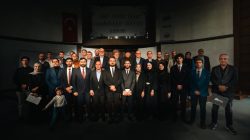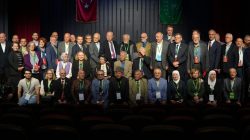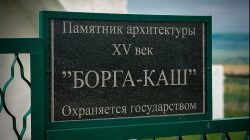
Nalchik/Agency Caucasus – A recent survey has revealed that the youth of North Caucasus tend to paint a bleak future and regard unemployment, corruption and bribery as the most important three problems to be dealt with primarily.
The Scientific Centre of the Academy of Sciences of South Russia is the institution based in Rostov-On-Don that surveyed the young people’s attitudes towards and beliefs about what went wrong socially in countries like Dagestan, Krasnodar, Karachai-Cherkessia and Stavropol. Marina Shulga, an official from the Centre, made public in Nalchik the results of the survey.
The young people surveyed created a list of the most urgent social problems that ran as follows: Unemployment, corruption, bribery, high rates of inflation as well as taxes, a rise in criminal acts, bad means of transportation, drug addiction and alcoholism, low standards of housing as well as public services, bad health care, terrorism, immigration, international strains, bad system of education, environmental problems, cultural as well as moral degeneration.
Asked whether they were happy with their financial status or not, 44.2 percent of the young people of Dagestan, 47.9 percent of Krasnodar, 51.5 percent of Karachai-Cherkessia, and 61.2 percent of Stavropol replied negatively.
The survey has also revealed findings that suggest a useful insight into the following areas of concern among the young people of North Caucasus:
CONFIDENCE IN THE FUTURE: The percentage of young people with a sense of certainty about their future is 22.3 percent in Dagestan, 26.5 percent in Krasnodar-Krai, 12.4 percent in Karachai-Cherkessia and 16 percent in Stavropol.
The percentage of young people that suffer from a sense of insecurity about their future chances of success is 49.3 percent in Dagestan, 44.4 percent in Krasnodar-Krai, 59.6 percent in Karachai-Cherkessia and 50.8 percent in Stavropol.
The overall percentage of those who don’t feel secure about their future is 47.5 percent. The percentage of those who don’t feel certain about their future at all is 14.8 percent in Dagestan, 11.7 percent in Krasnodar-Krai, 14.6 percent in Karachai-Cherkessia and 20.4 percent in Stavropol.
The young people in the 18-24 age group tend to take an optimistic attitude of their own kind that they will be able to improve their financial status in the future. The percentage of these people is 67.7 percent in Dagestan, 60.4 percent in Krasnodar, 50 percent in Karachai-Cherkessia and 37.8 percent in Stavropol.
THE SENSE OF BELONGING TO RUSSIA THROUGH CITIZENSHIP: The percentage of those who feel that they are Russian citizens is 53 percent in Dagestan, 64.5 percent in Krasnodar-Krai, 53.3 percent in Karachai-Cherkessia and 64.5 percent in Stavropol. The percentage of those who think that they show the regional characteristics of where they are is 25.1 percent in Dagestan, 14.3 percent in Krasnodar-Krai, 13.3 percent in Karachai-Cherkessia and 10.4 percent in Stavropol.
NATIONALISM: The percentage of those who feel proud of their nationality is 80.6 percent in Dagestan, 79 percent in Krasnodar-Krai, 85.4 percent in Karachai-Cherkessia and 78.6 percent in Stavropol.
MARRIAGE: The percentage of those who do not approve of international marriages is 22.7 percent in Dagestan, 24.1 percent in Krasnodar-Krai, 13.6 percent in Karachai-Cherkessia and 28 percent in Stavropol.
LIVING IN ONE’S OWN COUNTRY: The percentage of those who believe that people should live in their own country is 28.4 percent in Dagestan, 33.6 percent in Krasnodar-Krai, 20.5 percent in Karachai-Cherkessia and 34.1 percent in Stavropol.
SENSITIVITY TOWARDS FOREIGN LANGUAGE: The percentage of those who feel strained when they hear somebody speak a foreign language is 23.9 percent in Dagestan, 36.9 percent in Krasnodar-Krain, 28.4 percent in Karachai-Cherkessia and 43.6 percent in Stavropol.
RIGHTS AND LIBERTIES: The percentage of those who think that their rights and liberties are securely warranted is 13.7 percent in Dagestan, 7.2 percent in Krasnodar, 7.4 percent in Karachai-Cherkessia and 3.9 percent in Stavropol. The young people surveyed created a list of the things to be done to safeguard the rights and liberties: strengthening the effect of law at both state and social levels, safeguarding state institutions against bribery and corruption, enculturation of the laws at both public and administrative levels, successful fulfillment of the legislative proceedings and helping to expand civil movements set up to defend human rights.
SECURITY: The percentage of the young people who view it as the real threat that faces Russia’s security to suffer from economic instability and terrorism is 40.8 percent, to be unable to stop a growing divide between the rich and the poor 34.9 percent, to be negatively influenced by the international conflicts 32.9 percent, to be trapped in a political struggle for power 28.1 percent and to face the growing danger of outbreaks of violence across North Caucasus 22.8 percent.
KU/ÖZ/FT
[ssba]




